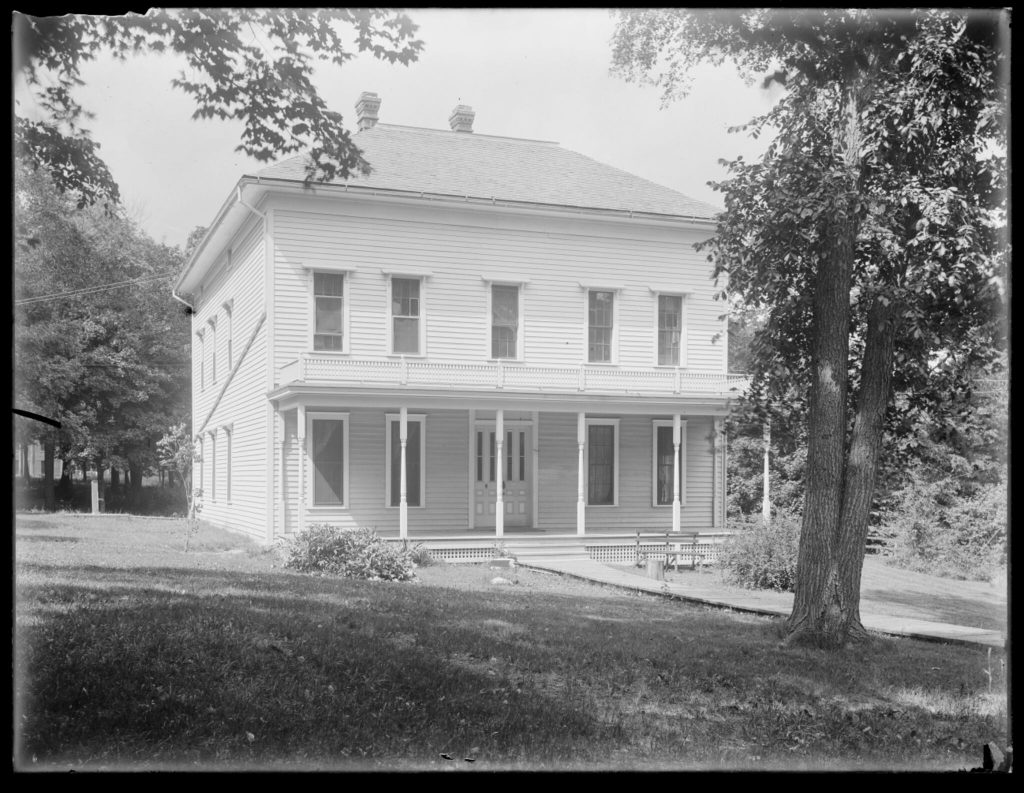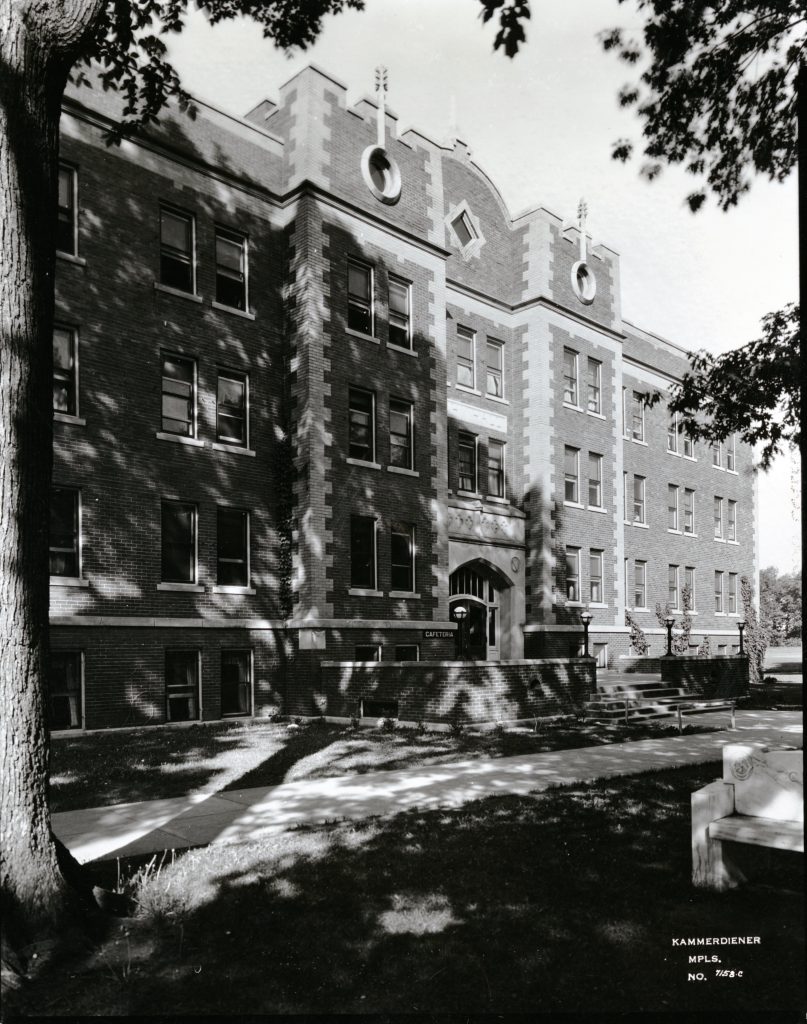Then & Now Tour: Stop 2
Holland, Tomson, Regents, Old Music Hall, Manitou Cottage, Paracollege
Holland Hall & Tomson Hall
In front of us is Holland Hall, which was built in 1925 for the college’s 50th anniversary and used to be the science building. Holland now houses the departments of History, Economics, Political Science, Philosophy, Sociology and Anthropology, and Social Work and Family Studies. In 1968 the sciences moved to Tomson Hall, which is behind us. Tomson Hall is now home to the language departments, the Admissions Office, the Smith Center for Global Engagement, the Piper Center for Vocation and Career, and a wide variety of administrative offices.
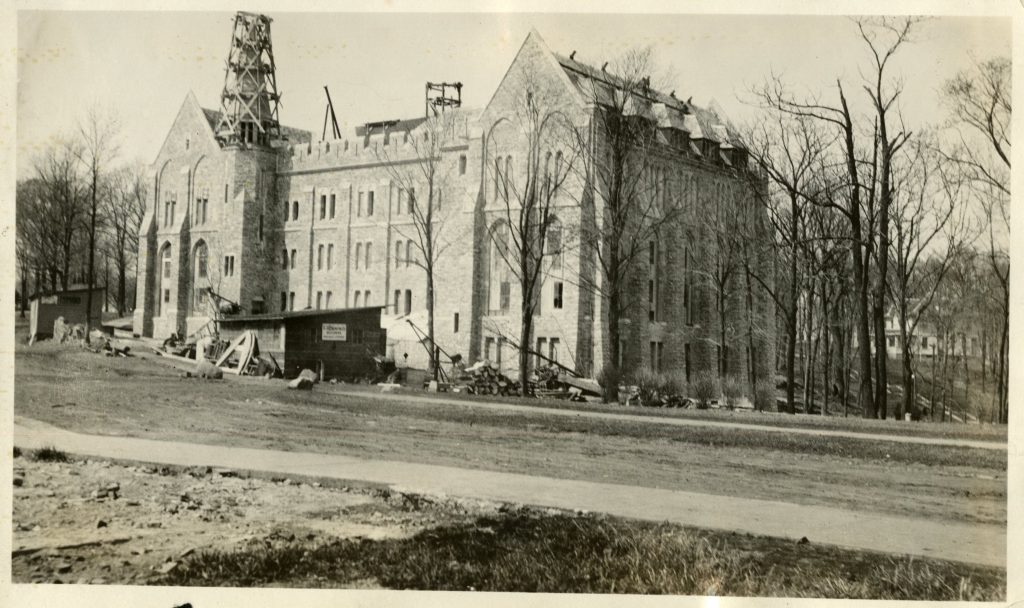
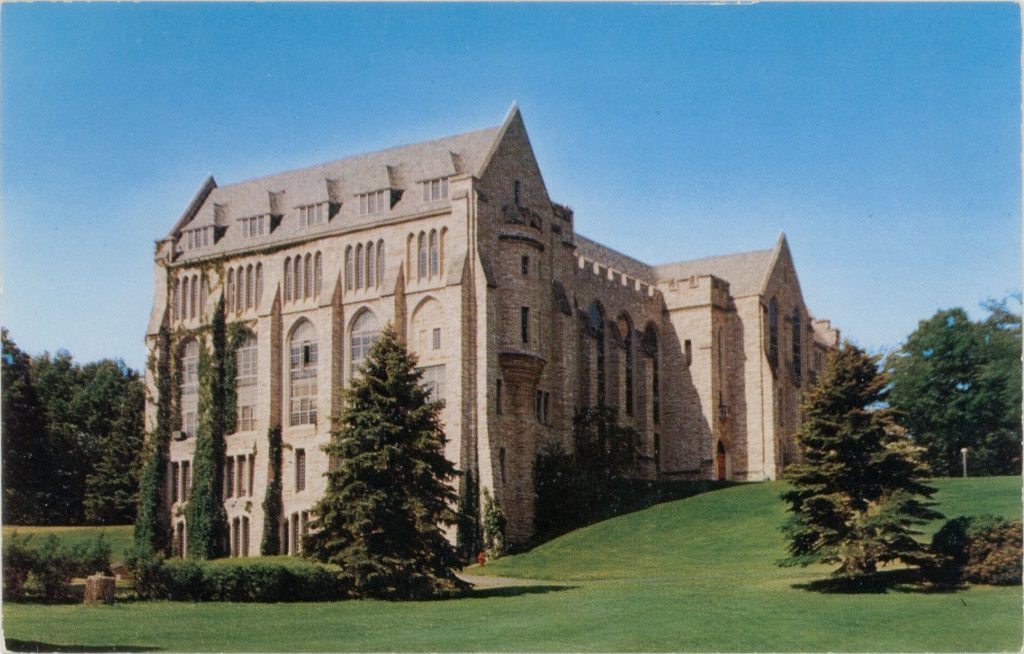
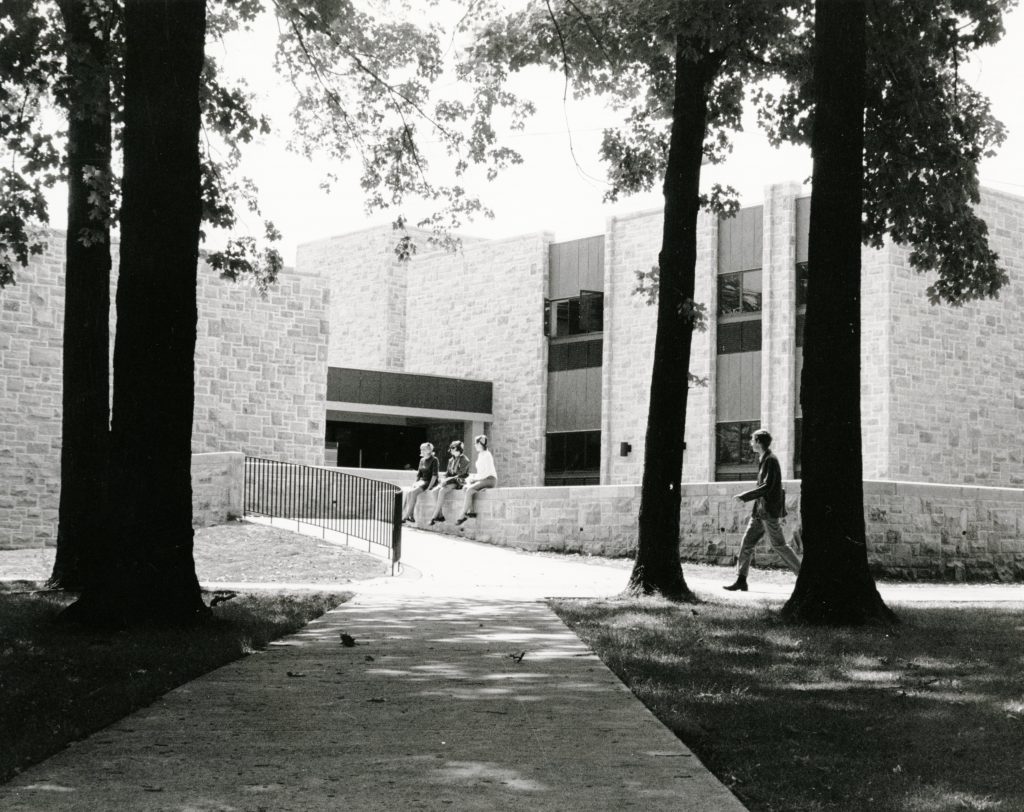
Regents Hall, Old Music Hall, Manitou Cottage
When the science and math departments became too big for Tomson Hall, Regents Hall of Natural and Mathematical Sciences was built. It connects to the Old Music Hall, where F. Melius Christiansen conducted the St. Olaf Choir for decades. The Old Music Hall was built in 1926 and was converted into math offices in the 1960s. Nearby was the original president’s house, also called Manitou Cottage. The first resident was the second president of St. Olaf, John Kildahl. Manitou Cottage was removed to build Regents Hall. Construction of the newest president’s house was completed in 2023, just in time for the inauguration of St. Olaf’s first female president: Susan Rundell Singer.
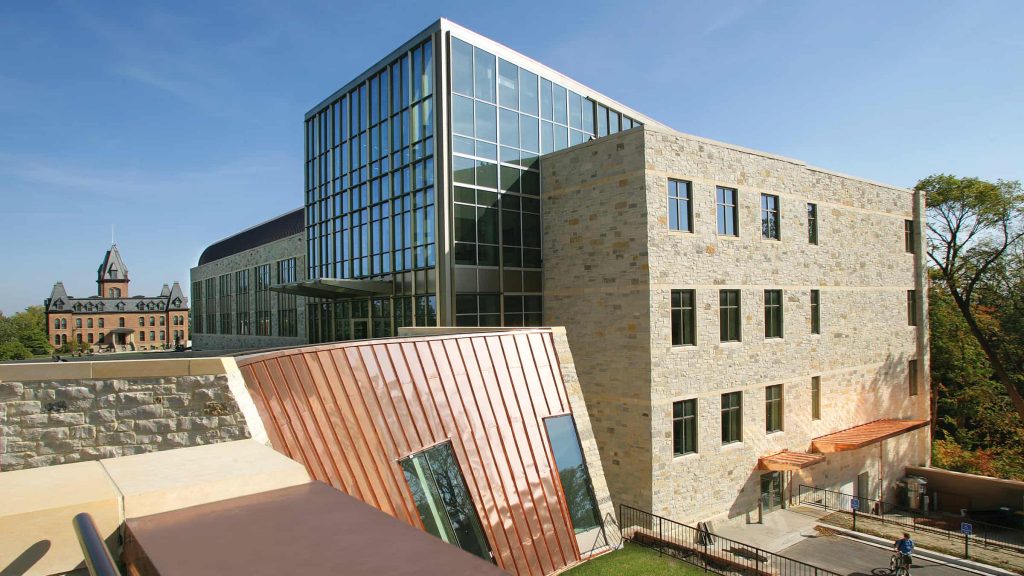
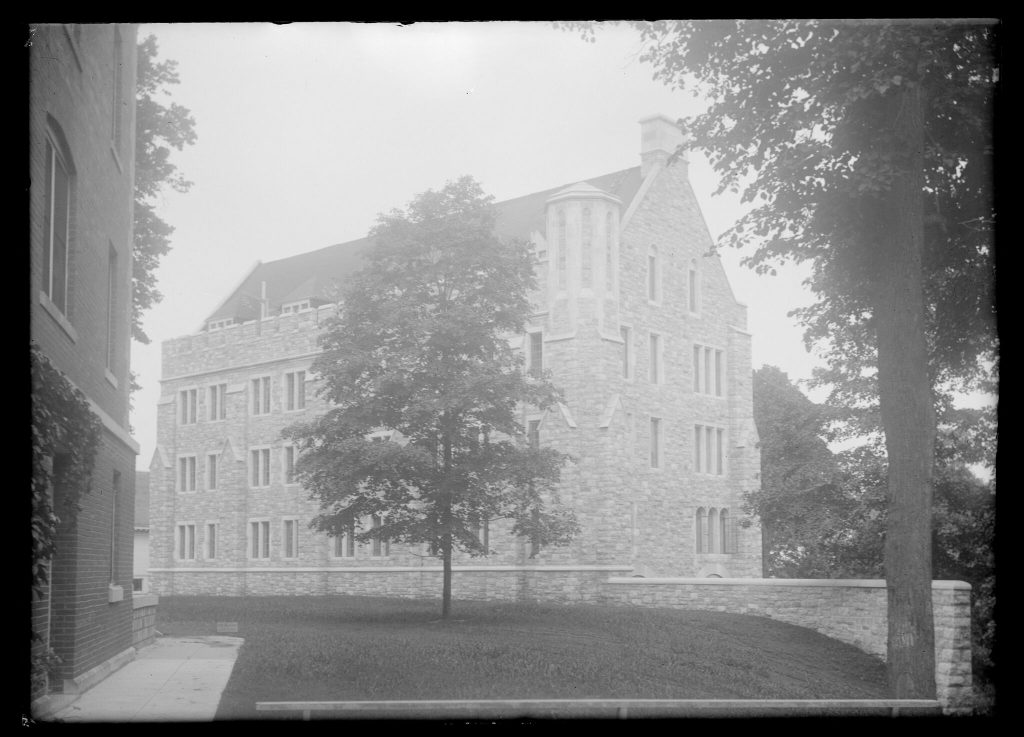
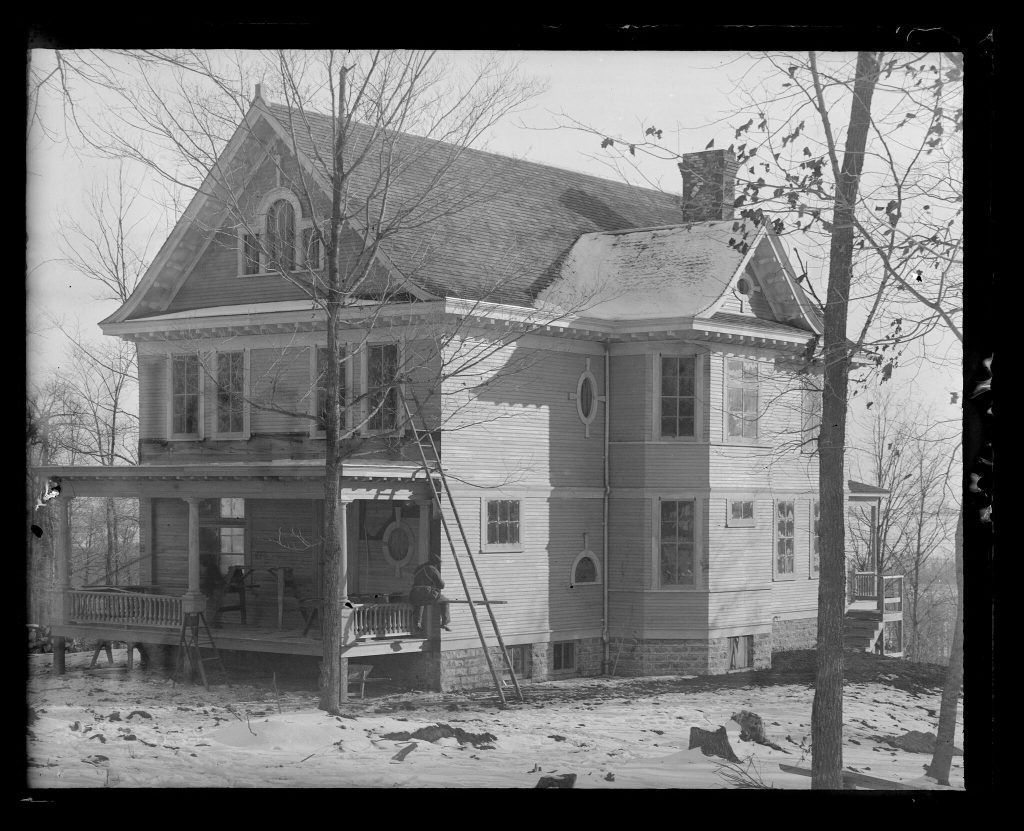
On the way…
Right now we’re passing over the spot where Ladies’ Hall once stood. It was where female students lived during the first 25 years of St. Olaf’s existence. Off to the left where Tomson now stands was the original Mohn Hall, named after the college’s first president. It was the first actual dormitory for St. Olaf women. Just down the hill you can see the statues that are a monument to the Paracollege. From 1969 to 2000, the Paracollege provided an alternative program of study toward the B.A. degree at St. Olaf College. Fulfillment of competency-based graduation requirements was tracked through the Paracollege in place of the college’s general education system. Rather than fulfilling requirements for a standard major, Paracollege students designed and implemented their own senior concentrations.
